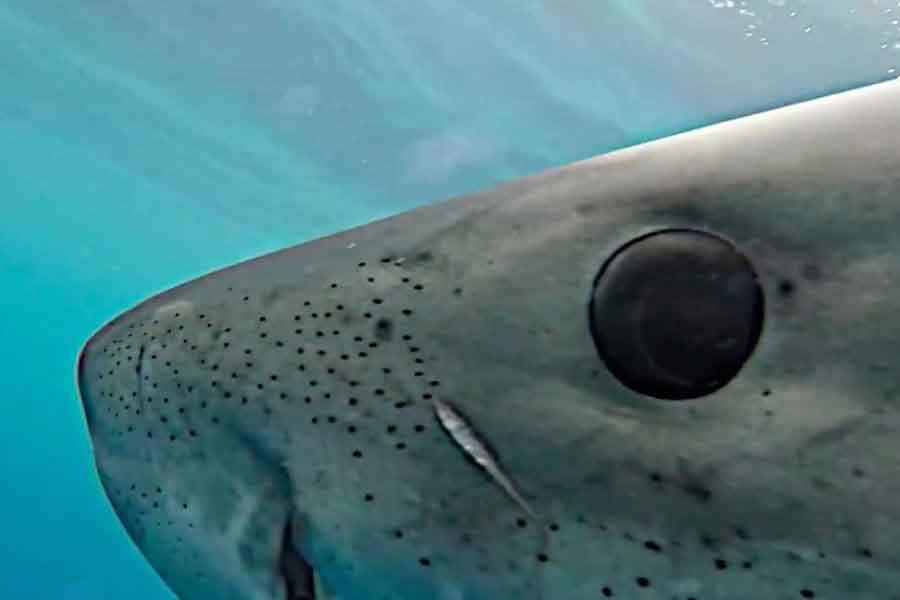
It has often been said that the vision of a shark is not very good, perhaps assuming that good vision means being able to see over long distances. But what use would long-distance vision be when the water’s transparency allows them to see, at most, a hundred meters?
No animal can be an effective hunter without a good vision of its prey and its surroundings. Therefore, an efficient sense of vision is one that best adapts to the environment in which the animal lives and hunts. The remarkable thing about a shark’s vision is that it can see with equal clarity in the dark depths of the sea and the sunlit surface. It can hunt with the same success at noon as in the black intensity of the night.
The secret to this ability lies in the tapetum lucidum, a tissue found at the back of the eyeball, acting like a reflective screen. The cells that make up this layer act as mirrors, reflecting up to 90% of the light back onto the retinal receptor cells, significantly enhancing the eye’s sensitivity. In this way, when a shark moves from a dark background to attack a seal floating on the surface, it can quickly adjust the tapetum to maintain the same light intensity throughout its approach, never losing sight of its prey.
The importance of vision in sharks when it comes to capturing prey is reflected in the size of their eyes. While the eyes of a carpet shark, which remains dormant on the seafloor, waiting for an unsuspecting fish to pass by its nose, represent only 1% of the total body length, in a blue shark, a swift hunter of the open ocean, the eye size can reach nearly 3%.
Undoubtedly, a good hunter must have vision adapted to its environment and hunting style, and the shark is a relentless, fast, and precise hunter. Perhaps that is why we fear them. We consider them dangerous and ruthless killers. That is why we chase them and kill them, hanging their jaws on our walls to display our power. But unlike humans, sharks only hunt for sustenance, they kill to survive. They do not kill for trophies that demonstrate their dubious worth.
«You cannot defend what you do not love, and you cannot love what you do not know.»

